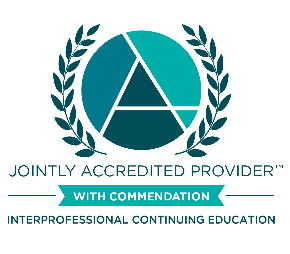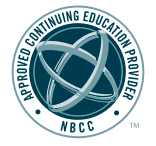A Resource for Healthcare and Social Services Professionals
December 1, 2023
12:00 pm–12:30 pm ET
Mutual support groups are a critical part of recovery that facilitate personal growth and self-exploration through peer support. This training will focus on identifying several types of self-help and community-based recovery support groups that may benefit persons with a substance use disorder. We will summarize the evidence for self-help programs and discuss the importance of building connections within the community to increase one’s recovery capital.
Via Zoom
This training will focus on identifying types of self-help and community-based recovery support groups. We will explore the known efficacy behind many models while recognizing the unique principles they follow as they build recovery support. Individuals who facilitate and/or have accessed recovery support groups will speak about their experience to help attendees understand these resources and improve care teams’ knowledge of recovery support groups to better link individuals in recovery to appropriate sober social support networks.
This training will improve knowledge gaps across care team members for those who may work to support individuals with substance use disorders. By reviewing the efficacy and philosophy of treatment groups, care team members will have a better sense of mutual support options for the patients and families they serve. In addition, by partnering with a peer with lived experience, we will broaden our understanding of the scope of services we should be providing to patients with alcohol use.
Prescribers, nurses, social workers, and other clinical and non-clinical staff.
Al is in recovery with several years of experience in the addiction field. He is a member of the Alcoholics Anonymous fellowship, with in-depth knowledge of the 12-step program and its ability to help people suffering from alcohol use disorder. Currently, he serves as the Manager for Recovery Services at the Holyoke Health Center, where he works directly with individuals facing substance use disorder and uses his expertise to educate and coach staff, including Medical Doctors, Nurses, and Therapists. Al's qualifications include completing the CCAR Recovery Coach Academy training and Ethical Considerations for Recovery Coaches. In addition, Al is trained in Motivational Interviewing, Addictions 101, Mental Health, Exploring Cultural Competency, and Understanding Structural Barriers to Engagement. He has also completed the Leadership Development Program, sponsored by AdCare, Addiction Technology Transfer Center, and Prevention Technology Transfer Center Network.
Following this training, participants will have the knowledge to:
Boston Medical Center Grayken Center for Addiction TTA, Massachusetts Department of Public Health, Bureau of Substance Addiction Services (DPH/BSAS)
Funding for out of state attendees is provided by the Opioid Response Network (ORN).
Funding for this initiative was made possible (in part) by grant no. 1H79TI083343 from SAMHSA. The views expressed in written conference materials or publications and by speakers and moderators do not necessarily reflect the official policies of the Department of Health and Human Services; nor does mention of trade names, commercial practices, or organizations imply endorsement by the U.S. Government.
REQUIREMENTS for credit
Please note this policy is strictly enforced for accreditation purposes. Participants will forfeit collection of credit and certificates of completion if more than 10 minutes of the training is missed.
CME
 In support of improving patient care, Boston University Chobanian & Avedisian School of Medicine is jointly accredited by the Accreditation Council for Continuing Medical Education (ACCME), the Accreditation Council for Pharmacy Education (ACPE), and the American Nurses Credentialing Center (ANCC), to provide continuing education for the healthcare team.
In support of improving patient care, Boston University Chobanian & Avedisian School of Medicine is jointly accredited by the Accreditation Council for Continuing Medical Education (ACCME), the Accreditation Council for Pharmacy Education (ACPE), and the American Nurses Credentialing Center (ANCC), to provide continuing education for the healthcare team.
Boston University Chobanian & Avedisian School of Medicine designates this live activity for a maximum of 0.50 AMA PRA Category 1 Credit(s)™. Physicians should claim only the credit commensurate with the extent of their participation in the activity.
Nursing
Boston Medical Center is approved as a provider of nursing continuing professional development by the American Nurses Association Massachusetts, an accredited approver by the American Nurses Credentialing Center’s Commission on Accreditation. Participants who complete and return the evaluation and stay for the entire session will be awarded 0.50 contact hours.
LMHC
 BMC Grayken Center of Addiction TTA has been approved by NBCC as an Approved Continuing Education Provider, ACEP No. 7188. Programs that do not qualify for NBCC credit are clearly identified. BMC Grayken Center of Addiction TTA is solely responsible for all aspects of the programs. For this program, 0.50 contact hours will be offered to participants who attend the training and complete the evaluation.
BMC Grayken Center of Addiction TTA has been approved by NBCC as an Approved Continuing Education Provider, ACEP No. 7188. Programs that do not qualify for NBCC credit are clearly identified. BMC Grayken Center of Addiction TTA is solely responsible for all aspects of the programs. For this program, 0.50 contact hours will be offered to participants who attend the training and complete the evaluation.
LADC/CADC & Recovery Coach
Grayken Center for Addiction TTA is approved to offer LADC/CADCs and recovery coaches who complete this course 0.50 general continuing education credits.
Disclaimer
Continuing education (CE) requirements vary by license and jurisdiction. When requesting continuing education credits, please ensure you are following the rules and regulations determined by the board regulating your license. Boston Medical Center Grayken Center for Addiction TTA does not oversee adherence to licensing requirements and regulations.